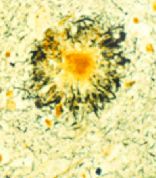
Alzheimer’s disease is the poster child for the limitations of allopathic medicine.
Factors that place Alzheimer’s at the cutting edge of this sea change in perspective
- It will affect 30% to 50% of people over 85 years old — the fastest growing segment of the population.
- The prevalence of Alzheimer’s is expected to increase 3-fold by 2050 to 14 million people.
- The estimated annual cost is $84 billion to our healthcare system and society.
- And that doesn’t include the untold suffering on families and caregivers.
- It is now the seventh leading cause of death.
Failure of current mainstream treatment options
- Therapy is limited to 2 main categories of medication, neither of which addresses the causes of dementia.
- Both are marginally effective (if at all) and have signiï¬cant side effects.
The multiple contributors to dementia
- Research indicates that inflammation, oxidative stress, insulin resistance, and mitochondrial dysfunction are key contributors of brain degeneration.
- But why these processes become altered is rarely explored.
The bottom line?
“Ample science,” says Dr. Hyman, “lays out the patterns of dysfunction in dementia and, to a great degree, most of the precipitating causes. Then, our individual genetic differences and predispositions [can] set us up for biological breakdown from … toxins such as mercury, digestive imbalances, nutritional deï¬ciencies or excesses, stress, allergens, infections. These in turn, lead to the altered physiological processes we see in the dementias.”
Dr. Hyman thinks, “This is a time when personalized medicine will replace medicine based on diagnosis and disease. In fact, disease and diagnosis as we know it (ICD-9 classiï¬cation of diseases) will soon be an obsolete concept, an artifact of medical history like bloodletting or phrenology (the art of diagnosis based on the shape of your skull, popular in the 19th century).”
“The time has come to focus on systems approaches to complex systems disorders.”
3/14/08 20:28 JR